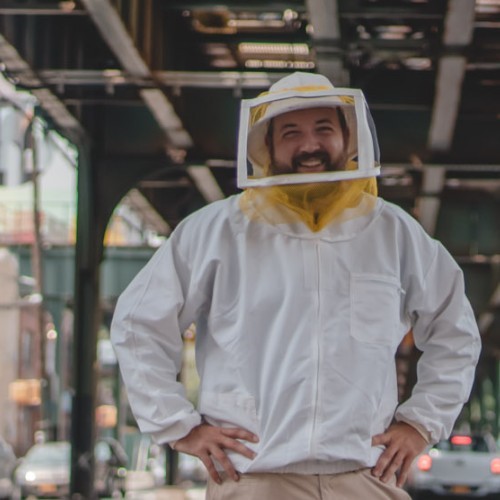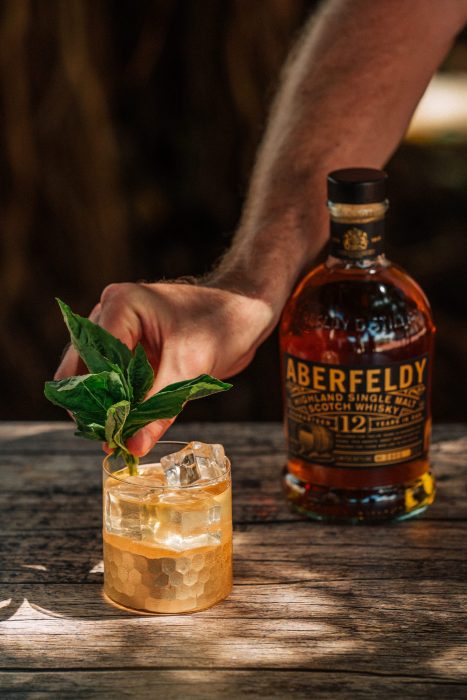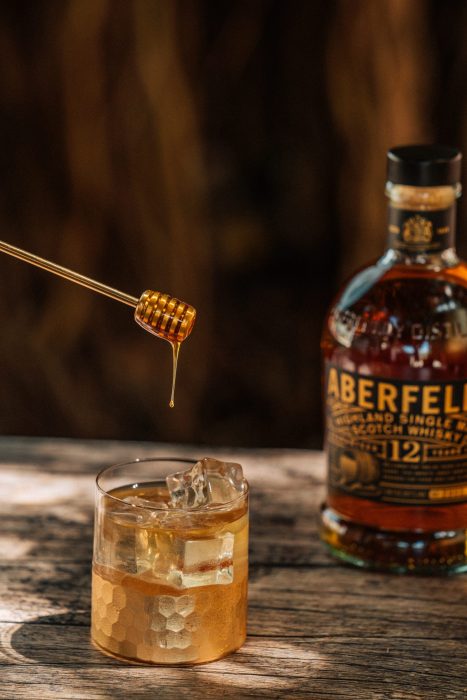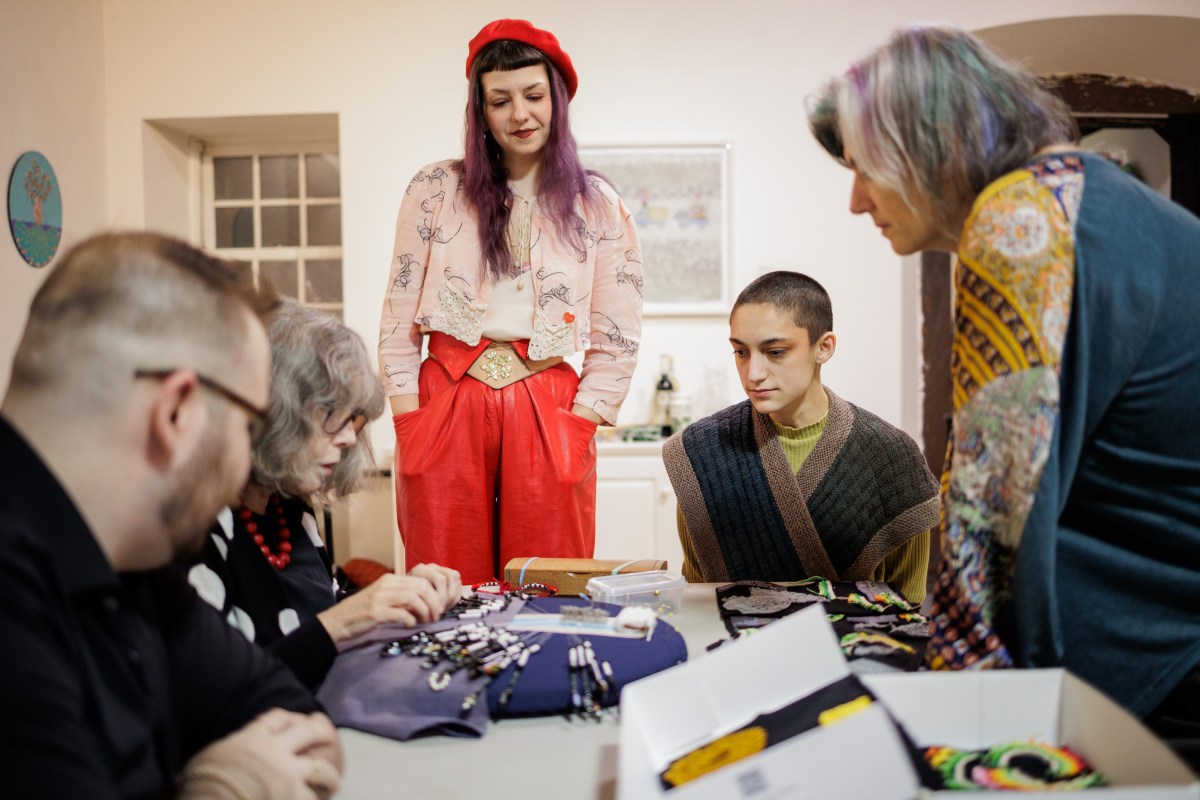What started as hobby ended up being a huge career move for a Queens-based beekeeper.
Nick Hoefly started beekeeping in 2015 after he and a friend decided to each get a hive of their own.
When it comes to beekeeping in an urban setting, it is actually not that different than beekeeping in a rural area. According to Hoefly, there are just a separate set of challenges such as climbing ladders with equipment and dealing with edges of buildings.
While beekeeping had become an enjoyable hobby for Hoefly, the costs of getting started were more than expected. This led to the creation of Astor Apiaries, the Queens-based shop where Hoefly sells honey.
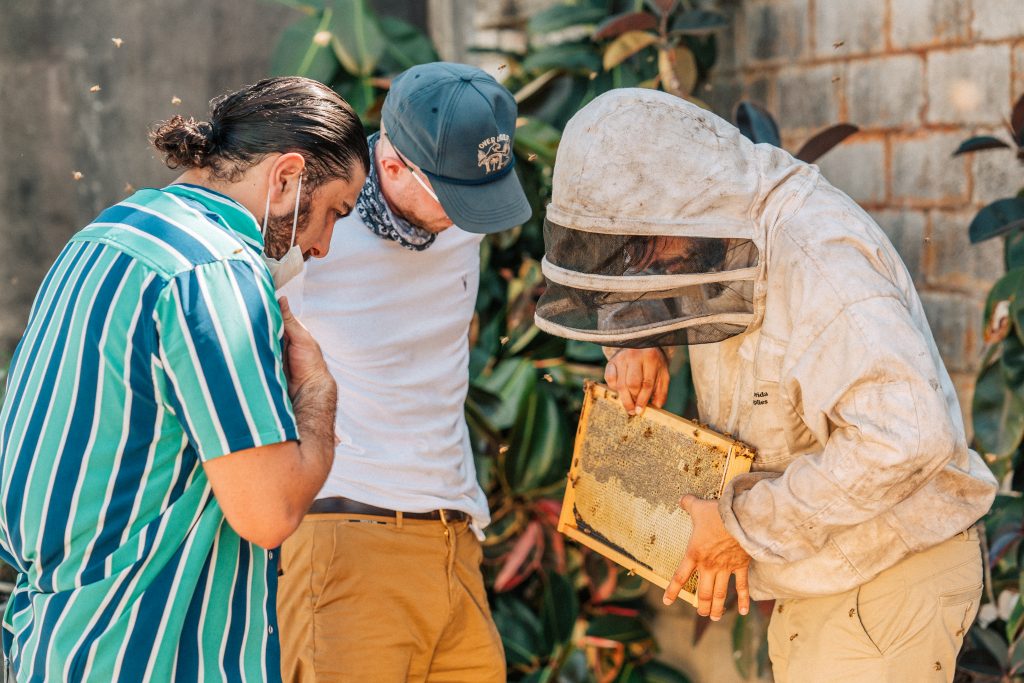
“The main reason that my wife and I started the business was really to finance the hobby,” said Hoefly. “Getting into beekeeping in the first couple of years — when you’re buying new equipment and buying bees — is a very high investment. Over the long haul it evens out, but the cost to get in at the beginning is steep.”
The name “Astor Apiaries” gives a nod to Astoria, where the shop is lbased. Hoefly started out going to local craft fairs and farmers markets to sell his products, and in its early days produced 40 pounds of honey. Over the years, the hives have produced 1,000 pounds of honey, and with the help of other urban beekeepers Astor Apiaries now services the city with locally sourced honey made right here in the five boroughs.
“We started to work with other beekeepers from other regions so that we can start putting together a line of honey varietals. All these different types of honey that you can get in different colors, different flavors, different aromas,” said Hoefly. “We wanted to start building those so we could carry it throughout the year especially if we happen to sell out of our honey, which seems to happen every year. We started retailing our honey around the city, but most are through, on normal years, local craft fairs and markets as well as on our website, but this year has been mostly on our website.”
Like many businesses, Astor Apiaries had its fair share of struggles amid the coronavirus pandemic. Because the bees never stop working, honey production for Astor Apiaries has been great. While sales were able to continue through the company’s website, a lot of the in-person work that Astor Apiaries carried out, such as hive tours, classes and work at local farmers markets, has been brought to a halt.
“It’s been interesting because you see all these other industries that are falling to their knees, the honeybees keep on going. They don’t know there’s a pandemic right now and we’ve had a really great year as far as honey production,” said Hoefly. “The pandemic has stopped us from doing our in-person stuff, which was significant to our business. Right before the pandemic started we had started our beginner beekeeping course — teaching beekeeping is difficult to do virtually, we want to have students back out next season. It hasn’t affected the bees themselves, but it has affected the way we operate.”
Despite the lack of in-person events, Hoefly says online sales and the response from the local community has been amazing for Astor Apiaries.
“Early in the summer, the support from the local community was incredible,” said Hoefly. “We actually had some of our best months as far as sales go in the very beginning because people wanted to support local. It’s definitely helped us manage the uncertainty during this time right now.”
This month, in honor of National Honey Month Hoefly participated in ABERFELDY Single Malt Scotch Whisky’s Gardening Giveback Project. In partnership with Bee Informed Partnership (BIP), the Garden Giveback Project partnered beekeepers and bartenders to use their honey as the main ingredient in signature cocktails. The goal of the project is to provide additional plants, herbs, and flowers for the local honey bees to pollinate, thus supporting the urban colonies and hives.
“I have actually been a big supporter of the BIP even before this. I was very excited to get involved with them initially and ABERFELDY told me all about what they were doing and seeing how they connect bartenders with beekeepers to show where ingredients are coming from,” said Hoefly. “It lined up perfectly with what we’re doing at the apiary, so I was on board from the beginning.”
The honey used from Astor Apiaries was used to create the ABERFELDY Herbed Honey Smash, which can be purchased to-go or enjoyed from a safe, social distance at Bathtub Gin and Jams. The cocktail herbs grown (such as basil and mint) from the community gardens tended by Hoefly and the bartenders.
For Hoefly, it meant a lot to be a part of this project because of how it can support local businesses in the long run.
“The honey that’s being made in your community is ending up in a drink in your community, and you can go and support these local businesses that are making it,” said Hoefly. “I think the big idea here is to bring awareness to where the honey is coming from, who the bees are and how it’s being used, and I’m happy to be a part of that.”
For more information about Astor Apiaries, visit astorapiaries.com.



